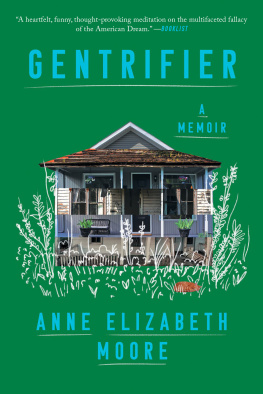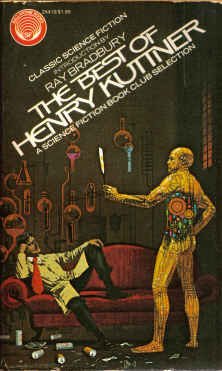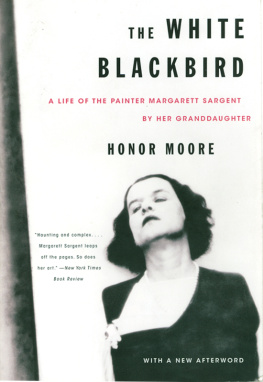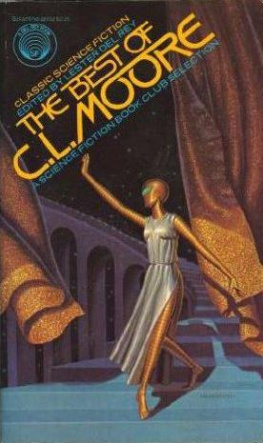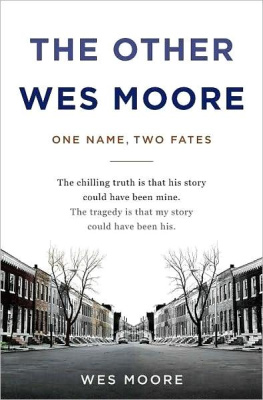Table of Contents
Guide
Page List
Praise for Gentrifier
Through a series of darkly comic vignettes... [Moore] uncovers the citys incompetent governance... Moores project here is not just to illuminate the citys chaos and who profits from it. Gentrifier is also an investigation of the costsmonetary, psychological, ethicalof her free house, and an ode to the neighbors who gave her life there inflections of joy.
KRISTEN MARTIN , NPR
[A] hilarious and harrowing account of her new life as a homeowner.
KEITH A. SPENCER , Salon
Original, funny, and brilliant, this book outmaneuvers, outshines, and will outlive so many memoirs that seek to cover the same tenuous ground.
KERRI ARSENAULT , Orion Magazine
Eye-opening... A unique, lovely meditation on the power of community.
Kirkus Reviews
Moore infuses this memoir with keenly researched insights about the historical forces that created Detroits (and Americas) housing crisis, creating a heartfelt, funny, thought-provoking meditation on the multifaceted fallacy of the American Dream.
Booklist (starred review)
Both comedic and fierce... Moores experiences will draw in readers interested in an intimate perspective on housing issues or life in recent Detroit. She provides thoughtful perspective on community, capitalism, and making art in difficult times.
Library Journal
Incisive... A trenchant meditation on how communities come together, and the forces that drive them apart.
Publishers Weekly
This kaleidoscopic page-turner chronicles the absurdities and hard-won joys of existing in a body, a household, a community, and a country. I dont know how Anne managed to write the funniest book Ive read in years and the most honest one about the scramble of American life, but she did, and we are the better for it.
JACE CLAYTON , author of Uproot
Gentrifier is a fascinating read: a writers dream comes true and she is given a house of her own, a house to write in, but things do not go as planned. Anne Elizabeth Moore is a superb and compassionate writer; this is a sweet, difficult, excellent book.
AUDREY NIFFENEGGER , author of The Time Travelers Wife
With wry humor and uncommon insight, Anne Elizabeth Moore crafts an intimate portrait of self-determination and communal possibility in a resilient Detroit neighborhood. Yes, this book is about gentrification, but it is also about neighborhood sustainability, government corruption, nonprofit hypocrisy, chronic illness, gardening, girlhood, family, racism, education, misogyny, autonomy, queer striving, a writers life, and the elusive and ever-present search for home.
MATTILDA BERNSTEIN SYCAMORE , author of The Freezer Door
Gentrifier is an indictment of institutionalized racism, xenophobia, and greedin both public and private spheres. But the heart of the book lies with Moores personal story, told with warmth and self-deprecating wit, breezy and deep in turn.
ABEER HOQUE , author of Olive Witch
Funny, tender, rigorous, and alive, Anne Elizabeth Moores Gentrifier is the best book Ive read on this freighted subject, and so much more. Along the way, you learn a lot about the wonders and complexities of one particular neighborhood in Detroit, but in turn your own communitywhat youve overlooked, and all you want to make better. A tour de force by a writer who is smart enough to let activism and absurdity sit side by side, and let them go. Im in awe.
PAUL LISICKY , author of Later: My Life at the Edge of the World
Anne Elizabeth Moores writing pulls no punches, rolls up its sleeves, and digs into difficulty with grace and aplomb. Gentrifier is a beautiful, complicated ode to a city, to creativity, and to community. It is funny, it is devastating, it is insightful. It is a tremendous call for change. I would read anything Moore writesincluding her grocery listand happily. Read this.
KAYLA RAE WHITAKER , author of The Animators
Anne Elizabeth Moore is one of our great chroniclers of the collisions between the personal and the political. A contemporary A Room of Ones Own, Gentrifier interrogates the relationships between class, race, gender, religion, sexuality, economics, love, community, and the medical industrial complex, all through the lens of Moores experience of being given a free house in Detroit. This story of a house, a city, and what it means to be a woman on ones own illuminates the utterly compelling complexities that lie beneath the veneer of what outsiders can glimpse in this one-of-a-kind American city. Moore offers a window through which we can deeply examine the beauties, booby traps, and at times Kafkaesque logistics of what it means to be an artist in the contemporary Midwestern landscape.
GINA FRANGELLO , author of Blow Your House Down

ALSO BY ANNE ELIZABETH MOORE
Sweet Little Cunt: The Graphic Work of Julie Doucet
Body Horror: Capitalism, Fear, Misogyny, Jokes
Threadbare: Clothes, Sex & Trafficking
Cambodian Grrrl
New Girl Law
The Manifesti of Radical Literature
Hip Hop Apsara
Unmarketable: Brandalism, Copyfighting, Mocketing, and the Erosion of Integrity
Hey Kidz! Buy This Book
FOUNDING EDITOR
Best American Comics

For Thurber, the cat who made me believe in cats, and for Doly, the neighbor who made me believe in neighbors.
CONTENTS
A woman must have money and a room of her own if she is to write fiction.
VIRGINIA WOOLF , A Room of Ones Own
For the cameras, I pretend that I am seeing it all for the first time. So one evening in early May 2016, families at dinner watch me on WXYZ-TV meandering hesitantly from room to room in the fancy outfit of an award recipient at her own celebratory gala, exclaiming with delight at: Empty white walls! Hardwood floors! A fancy bathtub! My own couch! That Nick and Nadine had carefully packed into a moving van in Chicago the previous day and driven for five hours before installing it in this mostly empty house and then leaving me alone to deal with the organization, the local artists, the new neighbors, the politicians, the print reporters, and the camera crews. The couch, years before, had been a gift from the same two friends, the castaway of a former lingerie designer. My friendship with Nick and Nadine spans more than a decade, and the couch is ten times that old, roughly the same age as the building it now rests in.
My delight at the house, another gift, is unfeigned, even if the structure itself is more familiar than the camera crews portray for viewers at home. For ten years I have spent more time traveling than I have staying put, and I am tired and broke in a general way, although in the moment, I feel happy, relieved, and excited. Those emotions are genuine.
So theres me on TV, smiling and gesticulating exuberantly on the front steps of a cute little white bungalow, shaking the hand of the ward district chief. He presents me with an award. Later he will let my calls about neighborhood needs go unanswered. One of the cofounders of the organization is also there. She hands me a set of keys. Soon she will be the cause of late-night phone calls and several emergency meetings. My next-door neighbors watch eagerly from their own porch. Within a day they will enter my home and explain to me that a neighbor, despite what I may have learned elsewhere, is a best friend. There I am on video, standing between Casey Rocheteau, a poet and educator and the first free-house winner, and the poet Nandi Comer who, it is announced today, will receive the house after mine, making her the fourth free-house winner and the only one from Detroit. Liana Aghajanian, an Iranian American journalist and the second winner, is absent but sends greetings. Collectively, we soon come to share a secret: it can be a nightmare to be publicly awarded a free house.

